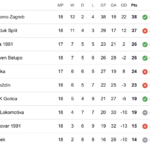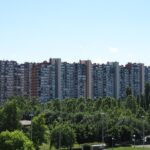Recently named as one of the 28 most influential people in the EU, just what was Mate Rimac doing at Stanford University?
“Who is here from Tesla?” asked Burton H. Lee, a professor who organizes a series of lectures on European business, on Monday afternoon at the campus of Stanford University. The question was not strange since it immediately preceded a lecture by Mate Rimac, the founder of Rimac Automobili which produces the fastest electric supercar. Although no one raised their hand, the audience did include representatives of the well-known company which manufactures electric cars. Also, in the audience there were employees of Google and some other important companies, and not just students of the Stanford University, reports Netokracija on January 13, 2016.
The series of lectures tries to explain differences between start-up ecosystems in Europe and Silicon Valley and to present to the students the particularities of Europe where entrepreneurship is much more complicated than in the United States – there are various challenges, such as cross-border issues, small countries, bureaucracies, mentality problems and traditions, which affect business development.
Mate Rimac brought the story about the complexity of doing business in Europe to a new level, explaining where Croatia is located, comparing its GDP with annual revenues of Google and BMW, as well as talking about his own entrepreneurial experience and the challenges which he has encountered. Many have already heard his story or read about it. Having won a number of awards at hardware competitions during high school, Mate first began taking part in car races and then he produced his first electric car. At first, he was a subject of ridicule, but after a series of improvements he started winning at the track and soon broke a Guinness World Record.
That was followed by investments, building a factory, product development… but, also by the first big problems. On the one hand, it was very expensive and complicated to find the necessary parts, especially for someone who wanted to produce very small series of vehicles. On the other hand, an investor withdrew his money in an effort to move the company to Abu Dhabi, which Mate did not want to do – leaving Croatia was not an option.
The company soon began producing parts for other companies, but also for its own cars, which helped it survive a difficult period. Today they manufacture all the components necessary for their vehicles, including software, except for some standard parts such as brakes. They have expanded to other areas, including electric motorcycles, marine vessels and even wheelchairs. Automobili Rimac became profitable in 2012, which was followed by additional investments. They currently have 150 employees, and by the end of the year they want to double that number.
Mate’s story caused a few eyebrows to be raised in the audience, particularly when he spoke about salaries of Croatian engineers at the beginning of their careers and about his “stubbornness” to stay in a country where entrepreneurial climate is not good and which is not even a market for his products. Mate explained that the ideal B2B market for them is China (from where the company has received an investment), while the market for his supercars are the United States. That is the reason why he plans to open offices outside of Croatia, while keeping production in his homeland.
His response to the question “why” received a well-deserved applause. Why would he remain in a country where it is not easy to find financing, which is not a market for his products, and in which it is getting harder and harder to find talented engineers? “It is hard to say whether location would make a significant difference to our business. We will be opening offices at several locations in the world, but we will keep production in Croatia. It might not be the easiest way, but I want to prove that it can be done.”







